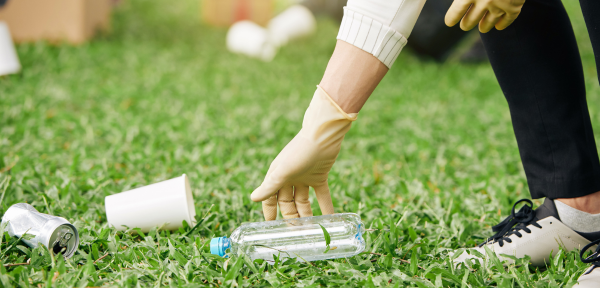Green Enough project hosts successful online training for environmental educators

Between 15 and 17 April, the Green Enough project successfully delivered its first online training session to a group of trainers. The course aims to equip professionals who work with adults with Developmental Disabilities (DD) and/or Intellectual Disabilities (ID) with the necessary knowledge to implement sustainable or green practices within their respective communities.
The three-day training course included the participation of professionals based in Greece, Poland, and Portugal, marking a significant step towards inclusive environmental education.
The training focused on various areas, including effective teaching methodologies and practical training tools tailored to the needs of adults with DD/ID. As well as providing training to professionals on how to effectively reach and engage the target groups the training covered key environmental issues including:
- Climate Change: Highlighting the impacts and necessary actions.
- Waste Management: Focusing on sustainable waste practices.
- Plastic Pollution: Discussing the environmental and health impacts of plastic waste.
- Marine Litter: Examining the sources and solutions to marine pollution.
- Food Waste: Addressing strategies to reduce food wastage.
- Behavioural Transformations for Environmental Sustainability: Providing insights into how behavioural change can lead to better environmental outcomes.
A special session was dedicated to introducing the "Green Enough AR" mobile application developed by Senseworks, which aims to facilitate interactive and engaging learning experiences.
Funded by Erasmus+, the training was delivered by project partners including AKTI, Ploes and Senseworks, with participants undergoing a final assessment by Cyprus Certification Company to receive certification. This certification enables professionals to teach the material effectively to individuals with disabilities. In doing so the project aims to not only promote environmental responsibility but also promote inclusivity and the potential of every individual to contribute to sustainability efforts.
Participants and the project partners acknowledged several obstacles that need to be addressed to successfully integrate environmental education among adults with DD/ID:
- Limited access to adapted environmental education and resources.
- Insufficient social support and existing stigma.
- Motivation and stereotypes affecting perceptions of the potential of individuals with DD/ID.
- Communication and cognitive barriers, alongside limited access to adaptive technologies and sensory sensitivities.
Despite these challenges, research by the project underscores that with appropriate support and education, individuals with DD/ID can engage in and adopt sustainable behaviours, such as recycling, conserving energy, and reducing water usage. Moving forward these trainers will be hosting a series of trainings for persons with developmental and/or intellectual abilities in Greece, Poland, and Portugal.
To find out more about the Green Enough project, click here.
Note for editors:
The Educational program to raise ecological behaviour through an inclusive methodology using Augmented Reality Technology (Green Enough) is an Erasmus+ project supported via the Greek National Agency (Project No: KA220-ADU-FD4DE223). The project partnership includes the project coodinator Astiki Etaireia Psichokoinonik on Meleton (Ploes) (Greece) and the following parnters Associacao Para a Recuperacao de Cidadaos Inadaptados da Lousa (ARCIL)(Portugal); Fundacja Eudajmonia (Poland); Kypriaki Etaireia Pistopoiisis Limited (Cyprus); Anaptyxi Kainotomikon Olokliromenon Proionton Asyrmaton Diktyon Aisthitiron Etaireia Periorismenis Euthynis (Sensworks) (Greece); Akti Kentro Meleton Ke Erevnas (AKTI) (Cyprus); European Association of Service providers for Persons with Disabilities (Belgium).

